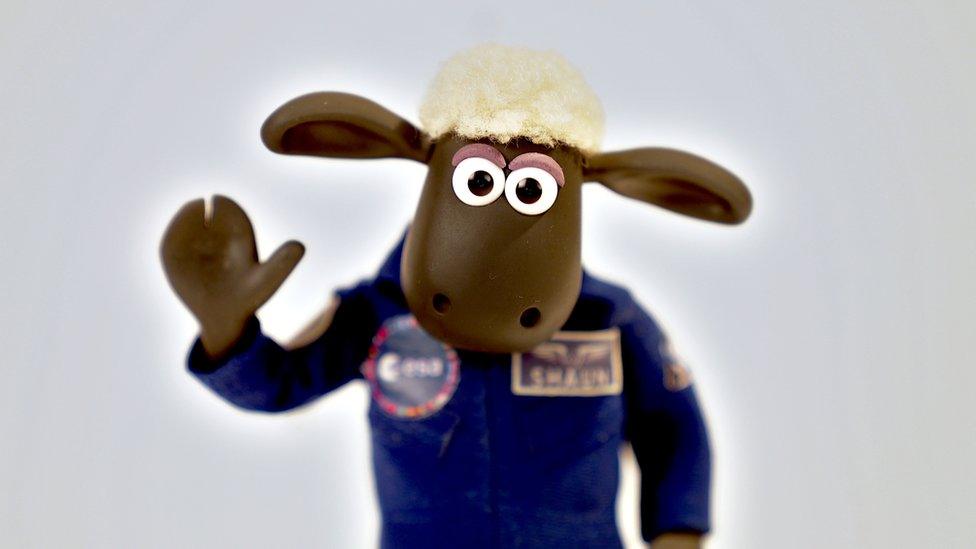Spacewalk training 'nothing like diving', says NI's first astronaut
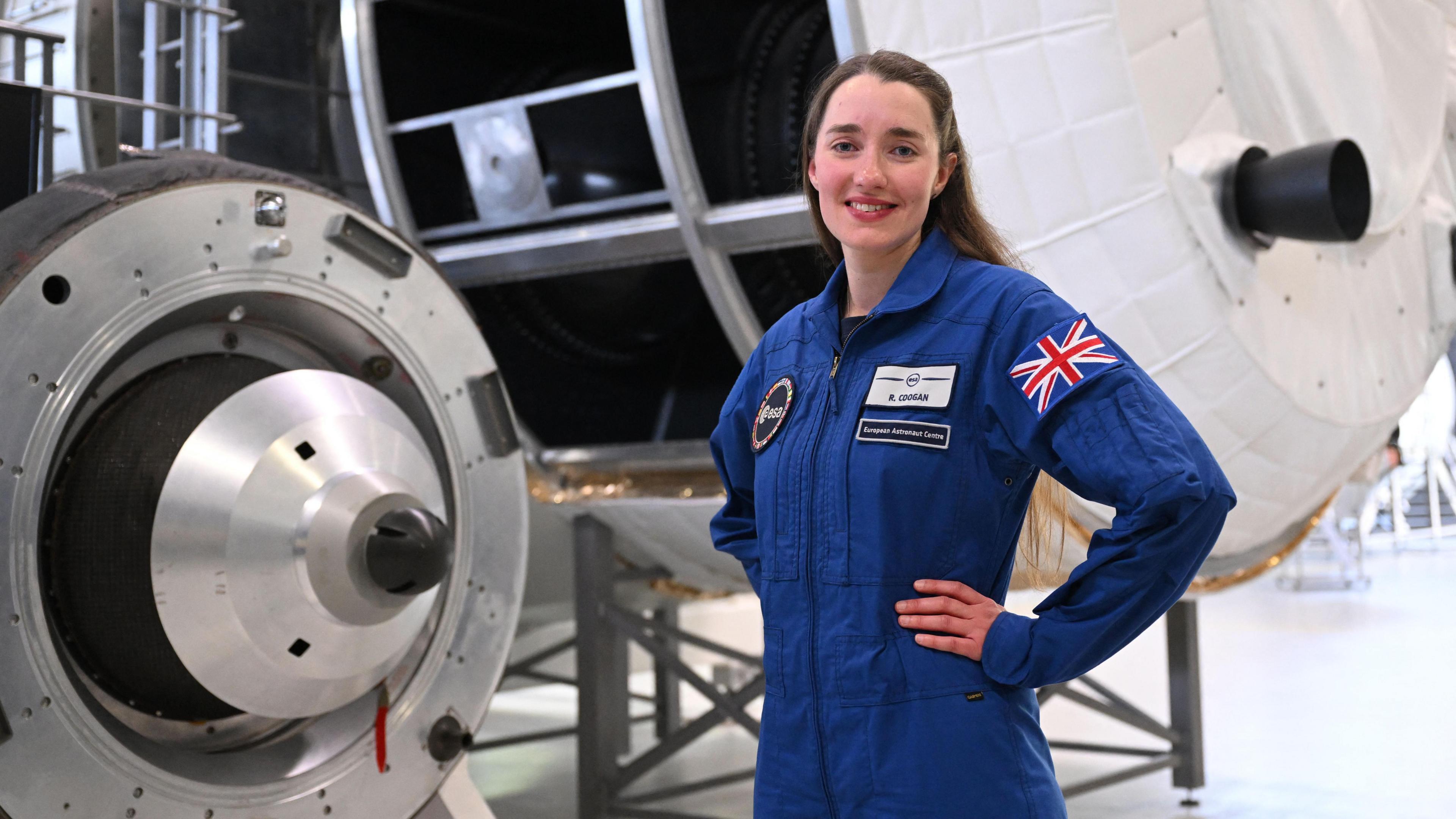
Northern Irish astrophysicist Dr Rosemary Coogan completed basic training with the European Space Agency last year
- Published
Dr Rosemary Coogan - Northern Ireland's first ever astronaut - has said the space sector is "very much changing in terms of having more and more commercial partners".
The astrophysicist, who was speaking to BBC News NI, is currently in the US for pre-assignment training and is undergoing rigorous spacewalk training.
Last year, Dr Coogan completed basic training with the European Space Agency and received her graduation certificate at a special ceremony in Cologne in Germany.
On Wednesday, she will be discussing her work at the Northern Ireland Science Festival, where she is hoping to inspire the next generation of scientists to pursue a career in the industry.
'Learning to do spacewalks'
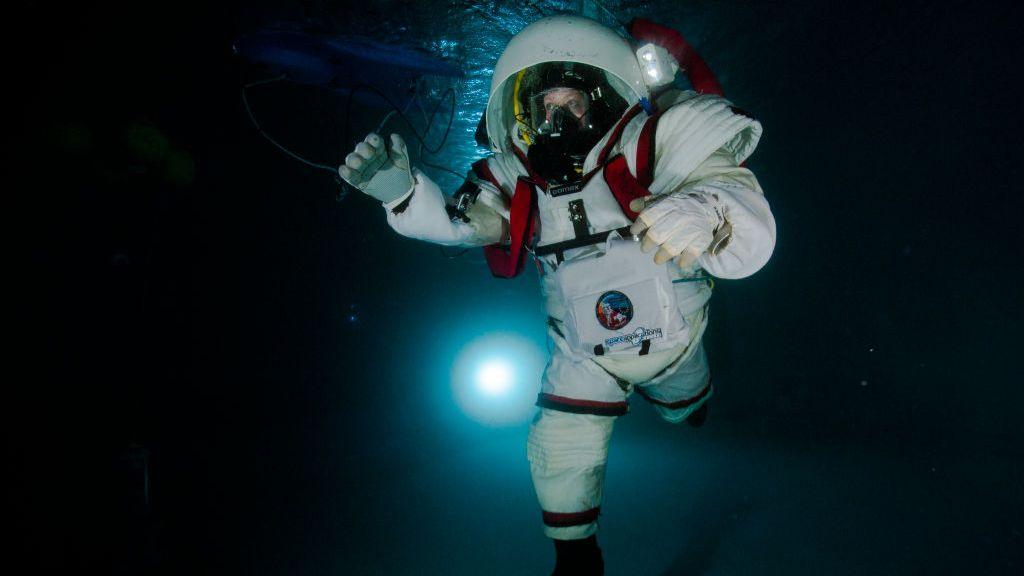
Astronauts undertake rigorous underwater training
Dr Coogan's pre-assignment training will last six months and she described her current spacewalk training as "really exciting".
It happens underwater in a giant pool, complete with a spacesuit and a mock-up of the space station, she explained.
"I absolutely love the water, but it feels nothing like diving," said Dr Coogan.
"Of course we have a lot of the same constraints in terms of safety underwater, decompression considerations.
"But in a spacesuit you can't swim, in space there is nothing to push against.
"It's physically hard work," she said, adding it seems ironic that a 'spacewalk' is mostly achieved through upper arm work.
'Space is really developing'
The landing of the first commercial spacecraft on the Moon last year sparked excitement about a new age of possibilities in the Solar System.
Several months later, SpaceX's Polaris Dawn crew returned to Earth after five days in orbit, following a historic mission featuring the world's first commercial spacewalk.
The US space agency Nasa said the mission represented "a giant leap forward" for the commercial space industry.
Speaking to BBC Radio Ulster's Good Morning Ulster programme from the Johnson Space Centre in Houston, Texas, USA, Dr Coogan said the space industry is "very much changing".
"Of course, there is a need for a huge amount of people who need to be regulating what we do and why, both government and commercial," she said.
"There are benefits to having that commercial side, we now are going up to the International Space Station in commercial vehicles and, without that, it's difficult to say where we would be."
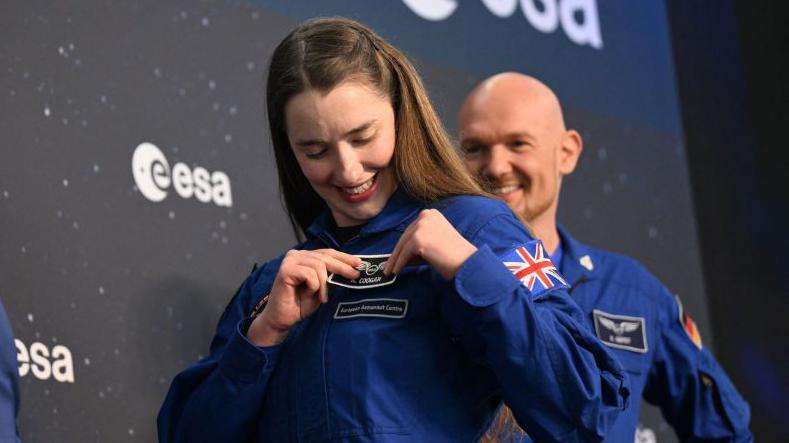
Dr Coogan follows in the footsteps of Tim Peake - the UK's first ever Esa astronaut
Work in space for the 'benefit of Earth'
Dr Coogan emphasised the science being conducted in space is "very, very important".
"[It] cannot really be replaced in any other context. That's why I do this job."
She pointed out that while exciting experiments are happening in micro-gravity environments on Earth, these can only last for a brief period.
"Removing that gravity element is completely irreplaceable," she said.
Dr Coogan added that as space is used more for various purposes, it's crucial to protect both the space environment and the Earth's environment.
"What we do in space really is for the benefit of Earth," she added.
Regarding satellites, she mentioned that while they play a role in Earth research, scientists must also consider the issue of space debris.
"When we send these new technologies into space it is very much a push now to have an end-of-life plan for the satellite," she said.
"How is it going to be de-orbited or send into a higher orbit where it is out of harms way?"
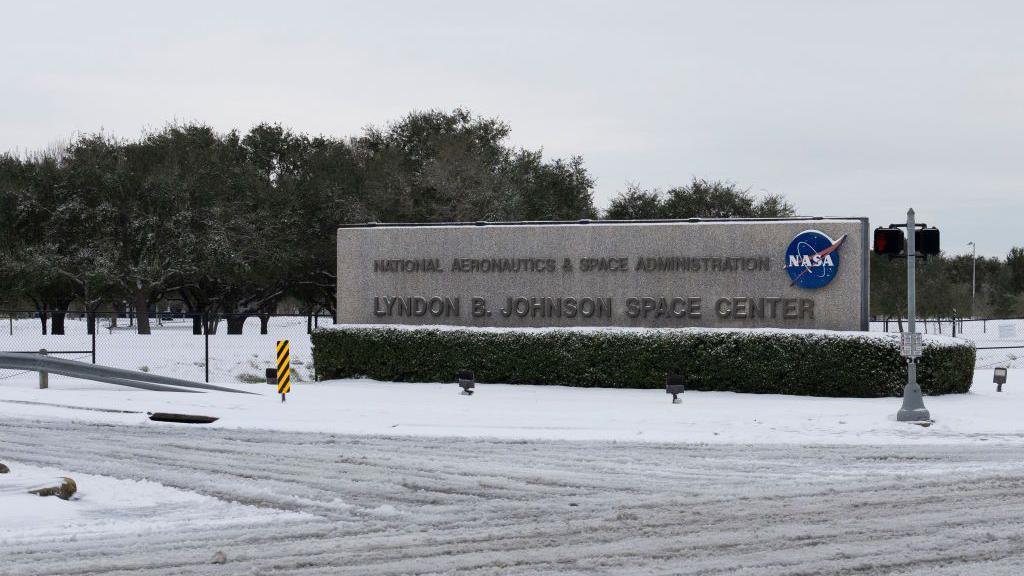
Dr Coogan is completing pre-assignment training at the Johnson Space Centre in Houston, Texas
On Wednesday, Dr Coogan will be speaking to the NI Space Office about her journey as part of the Northern Ireland Science Festival.
"There is a real pull to say yes to these events, particularly when you are engaging with young people," she said.
"School children wrote in and recorded their questions, it is fascinating for me to see what young people are interested in and try my best to give them answers.
"Every now and then there will be a question you'll have never imagined before."
- Published22 April 2024
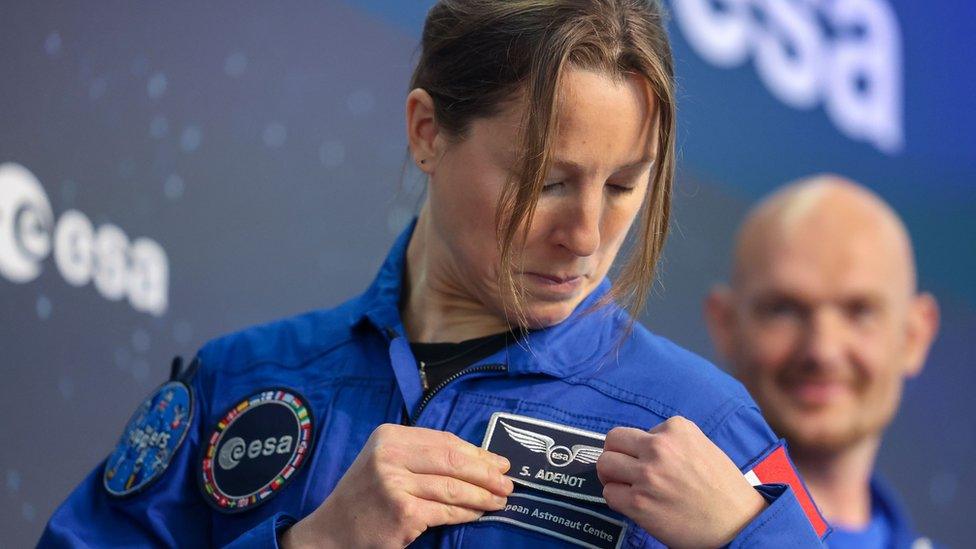
- Published29 March 2023
